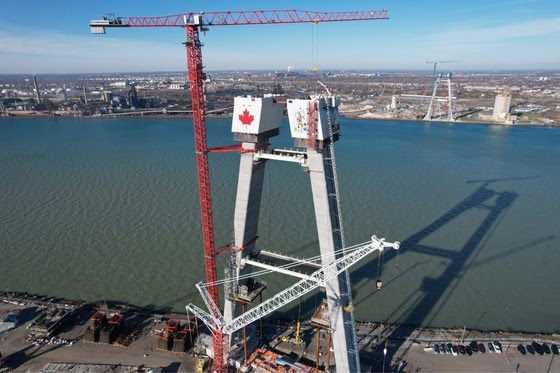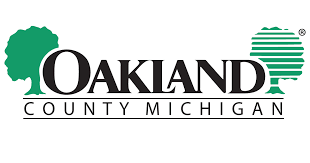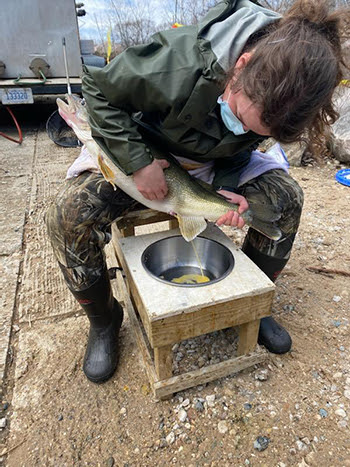
by Becky Andrus | Jan 24, 2022 | Regional News

Believe in Michigan: Investing in Education and Talent
Michiganders celebrate why they believe in Michigan through video series leading up to Governor Whitmer’s State of the State address
LANSING, Mich. – Leading up to the Governor’s State of the State address, Gov. Whitmer’s team set out to hear from Michiganders across the state on why they believe in Michigan. We’ll share their thoughts each day leading up to the address in a video series.
“I will always strive to make bigger, bolder investments in our kids, teachers, and schools because when they succeed, we all succeed,” said Governor Gretchen Whitmer. “Every Michigander deserves a path to a high wage job, and I am committed to making that dream a reality for more residents.”
“I want to see my state government focus on infrastructure, clean water, better roads and bridges, and ample power supplies. Creating opportunities for us all to live equitably, regardless of your county, your salary, your school district or your race,” said Kendra Barclay, Midtown Detroit resident and teacher. “I also would like to see a focus on teacher retention and attracting more people to the profession. “
Barclay, who spent a year working on an island of South Carolina, shared her thoughts on why she believes in Michigan and is glad to be back, “I believe in Michigan because even though I know there is room for teachers here and across the country to be better compensated for what we do, leaving the south and working here in Michigan afforded me a better lifestyle. I want all of our residents to feel the way I do about Michigan. It’s a great place to be.”
Governor Whitmer’s Focus on Education, Talent
From her first day in office, Gov. Whitmer has worked to expand opportunities and improve outcomes for Michiganders. Governor Whitmer made the largest education investment in state history-without raising taxes-to close the funding gap between schools in Michigan, expand access to preschool program for 22,000 more four-year-olds, and distribute resources to expand mental health supports for our kids. These historic investments ensure our schools have the funds to help each and every Michigander reach their full potential.
The Governor also believes that every Michigander deserves a path to a high wage job, and she is committed to making college degrees and skill certificates available and affordable for more residents. Since last Sept., over 170,000 Michiganders applied for scholarships through Michigan Reconnect and Futures for Frontliners, two programs she created to put people on tuition-free paths to better-paying jobs. Here are a few other key numbers to celebrate:
- $8,700 per student closes funding gap between schools, part of largest education investment in state history.
- 100% of eligible four-year-olds can attend free, high-quality preschool under Michigan’s home-grown Great Start Readiness Program (GSRP).
- 170,000 Michiganders on path to good-paying jobs because of Michigan Reconnect and Futures for Frontliners.
|

by Becky Andrus | Jan 24, 2022 | Regional News

Gov. Whitmer Celebrates Expansion of MI Tri-Share Child Care Program Which Supports Michigan’s Working Families
LANSING, Mich. – As part of the state’s efforts to increase access to high quality, affordable child care for working families, help retain talent and remove a major barrier to employment, the Michigan Women’s Commission (MWC) was awarded $800,000 by the W.K. Kellogg Foundation to launch two additional regional pilots of the MI Tri-Share Child Care Program. Mothering Justice in Detroit and Battle Creek Shared Services Alliance in Battle Creek will serve as the new facilitator hubs administering these grant dollars.
“Our investment in high-quality, affordable child care, continues to help parents get back to work and is foundational to our economic recovery,” said Gov. Gretchen Whitmer. “As we drive down the cost of child care in Michigan, these lasting investments and public-private partnerships will empower us to help more working families in Michigan. In Michigan today, one in three children 12 and under are eligible for low or no-cost childcare, and we will continue working to expand access and lower costs.”
Through Tri-Share, the cost of child care is shared equally by an eligible employee, their employer and the State of Michigan, with coordination being provided regionally by a facilitator hub.
“Child care is integral to the economic stability of Michigan families,” said Cheryl Bergman, CEO of the MWC. “While administering Tri-Share, we continue to witness its positive impact and how it helps alleviate the financial burden families face. With the overwhelming positive response and support from the Whitmer administration and foundations like the Kellogg Foundation, the MWC continues to be well-positioned to further expand the program moving forward.”
The Kellogg Foundation grant also includes funds for an outside evaluation of how Tri-Share is working, as well as investments in and supports for child care providers, such as training and professional development. Tri-Share facilitator hubs currently administer the pilot program in the Great Lakes Bay region, Northwest Lower Peninsula region, West Michigan region, Calhoun County and the City of Detroit.
“High-quality, cost-effective child care needs to be regarded as a basic public service and a means to position every child to achieve future success,” said Faye Nelson, Director Michigan Programs at the W.K. Kellogg Foundation. “The Kellogg Foundation is proud to make this investment to support the continued expansion and success of Tri-Share.”
“Child care is a right and we are excited to assist in furthering opportunities for the whole family. This is a first step in creating a system that is more accessible.” said Krista McClure, Director of Special Projects at Mothering Justice. “We’re proud to be part of a program helping more families achieve this kind of success.”
Tri-Share, a first of its kind program in the country, has received bi-partisan support. The legislature included $2.5M in the Fiscal Year 2022 budget to expand the Tri-Share pilot program following Gov. Whitmer’s recommendation. The budget also included a historic investment in child care, allocating $1.4 billion of federal COVID funds to help support child care providers, reduce costs and expand subsidies to another 105,000 Michigan families. As a result, thousands of parents will be able to re-enter the workforce after the disruptions of COVID and the state is laying the foundation for a more equitable and sustainable long-term base of support for early childhood in Michigan.
“Employees receiving child care assistance see improved employment outcomes, are employed at higher rates and see greater job retention,” said Kathleen Moore, Executive Director of the Battle Creek Shared Services Alliance. “In an era when we’re seeing parents choosing between their jobs and child care services, it’s inspiring to see Tri-Share succeeding and growing.”
Details about the Tri-Share program, including current pilot regions and participating employers, can be found at michigan.gov/Tri-Share.
|

by Becky Andrus | Jan 24, 2022 | Transportation
“I’m standing on the biggest infrastructure project in North America”
On this week’s Talking Michigan Transportation podcast, a conversation with Nickolai Miotto, a member of Operating Engineers 324 working on the Gordie Howe International Bridge. Following his appearance, Andy Doctoroff, the point person on the project for the Michigan governor’s office, visits again to offer an update on the project’s progress.
Listen now: https://www.buzzsprout.com/1374205/9926385-i-m-standing-on-the-biggest-infrastructure-in-north-america

Ahead of Michigan Gov. Gretchen Whitmer’s 2022 State of the State address next week, Miotto was featured in a video series produced to highlight components of the speech.

Miotto talks about how he made his way into the training program to become an equipment operator and what it means to be working on such an iconic project. In the video, he touts the importance of infrastructure investment to job creation and economic development and why he thinks it spells good things for the future of Michigan.
|

In the second segment, Doctoroff offers highlights on the project’s status, including significant work on the Michigan interchanges that will serve bridge users. He also marvels at the towers going up, which will eventually soar more than 700 feet into the sky, nearing the height of the Renaissance Center.
Doctoroff also talks about the robust engagement process to keep members of communities on both sides of the border engaged and up to date on developments.
The Windsor-Detroit Bridge Authority produced this virtual tour to illustrate progress.
|

New Gordie Howe International Bridge tower being constructed.
First portrait: Nickolai Miotto, member of Operating Engineers 324 working on the Gordie Howe International Bridge.
Second portrait: Andy Doctoroff, point person on the project for the Michigan governor’s office.
|
|

by Becky Andrus | Jan 20, 2022 | Regional News
Oakland County Investing $1 Million to Aid Development of Attainable Housing
Pontiac, Michigan – Oakland County is supporting the development of affordable rental housing in the community. The Neighborhood & Housing Development Division will award up to $1 million in total gap funding for new construction, acquisition, rehabilitation, or preservation of affordable rental housing with a focus on access to supportive services and sustainability such as walkability to jobs, groceries, transportation, and more.
“Increasing the stock of attainable housing in Oakland County is key to keeping residents here and attracting new and younger people to the county,” said Oakland County Executive David Coulter. “Securing a safe and affordable place to live is fundamental to quality of life and shouldn’t be denied to anyone who wants to make Oakland County their home.”
Oakland County is utilizing a portion of its annual funding allocation from the U.S. Department of Housing and Urban Development’s (HUD) HOME Investment Partnerships Program (HOME). The HOME Program is the largest federal block grant to state and local governments designed exclusively to create affordable housing for low-income households.
To qualify as affordable housing, HOME unit rentals must be available to households at or below 60 percent of Area Median Income (AMI), which is approximately $48,000 for a family of four in Oakland County.
“County Executive Coulter has tasked the Neighborhood & Housing Development Division (NHD) with creating livable neighborhoods and affordable housing throughout Oakland County,” said Shane Bies, NHD manager. “This is the first time we are offering gap funding for affordable rental housing developments.”
For more information on funding and qualifications, click on
https://www.oakgov.com/advantageoakland/communities/Pages/HOME.aspx
or contact Oakland County Neighborhood & Housing Development at [email protected] or 248-858-0493.
by Becky Andrus | Jan 20, 2022 | Uncategorized
|
|
 |
– DNR News –
|
|
Jan. 20, 2022
Contact: Seth Herbst, 517-388-7759 or Sierra Williams, 517-230-8788
DNR finalizes walleye management plan for inland waters
 With an aim toward maximizing both angler satisfaction and the ecological benefits of the state’s walleye fisheries, the Michigan Department of Natural Resources has finalized a plan to guide the department’s management of the popular species in inland waters. With an aim toward maximizing both angler satisfaction and the ecological benefits of the state’s walleye fisheries, the Michigan Department of Natural Resources has finalized a plan to guide the department’s management of the popular species in inland waters.
The final plan comes after careful consideration and integration of public input on the draft walleye management plan, which the DNR initially asked for in February 2021.
Although walleye reside in the Great Lakes, rivers and inland lakes, the plan focuses on inland waters – mostly inland lakes – because walleye management in Great Lake waters is primarily addressed in various other department-approved management or rehabilitation plans.
The new walleye management plan for inland waters provides an overview of:
- The status of the species in Michigan.
- The biology and ecology of inland walleye populations.
- Angler perceptions about walleye management and fishing opportunities.
- Previous management efforts.
The plan also identifies several management goals that broadly address ecological and social characteristics of walleye fisheries, because both elements are key to successful species management. The plan provides a formalized management framework for walleye that accounts for habitat suitability and describes recommended actions to efficiently and effectively protect and conserve walleye populations throughout the state.
“Walleye is an ecologically important species that also receives substantial attention from our anglers,” said Seth Herbst, lead author and manager of the Aquatic and Regulatory Affairs Unit in the DNR Fisheries Division.
“It is essential that we formalize and implement statewide manage strategies to maintain and enhance walleye populations during a time frame when this species is threatened by changing habitats, including establishments of detrimental aquatic invasive species,” Herbst said. “Effective management leads to robust walleye populations, and that means diverse fishing opportunities for anglers.”
The DNR Fisheries Division developed the Management Plan for Walleye in Michigan’s Inland Waters with assistance from Michigan State University Fisheries and Wildlife Department faculty. Additionally, consultation with Tribal governments and feedback from other state natural resource agencies, citizen advisory committees and anglers were critical to inform and revise early versions of the plan.
The DNR appreciates the input and comments provided by the public to finalize the walleye management plan. Visit Michigan.gov/Walleye to learn more about walleye and management efforts and review the final plan. |
Note to editors: An accompanying photo is available below for download. Caption information follows.
- Walleye: The DNR conducted a walleye egg take on the Muskegon River.
|
| DNR COVID-19 RESPONSE: For details on affected DNR facilities and services, visit this webpage. Follow state actions and guidelines at Michigan.gov/Coronavirus. |
|
| The Michigan Department of Natural Resources is committed to the conservation, protection, management, use and enjoyment of the state’s natural and cultural resources for current and future generations. For more information, go to Michigan.gov/DNR. |













 With an aim toward maximizing both angler satisfaction and the ecological benefits of the state’s walleye fisheries, the Michigan Department of Natural Resources has finalized a plan to guide the department’s management of the popular species in inland waters.
With an aim toward maximizing both angler satisfaction and the ecological benefits of the state’s walleye fisheries, the Michigan Department of Natural Resources has finalized a plan to guide the department’s management of the popular species in inland waters.